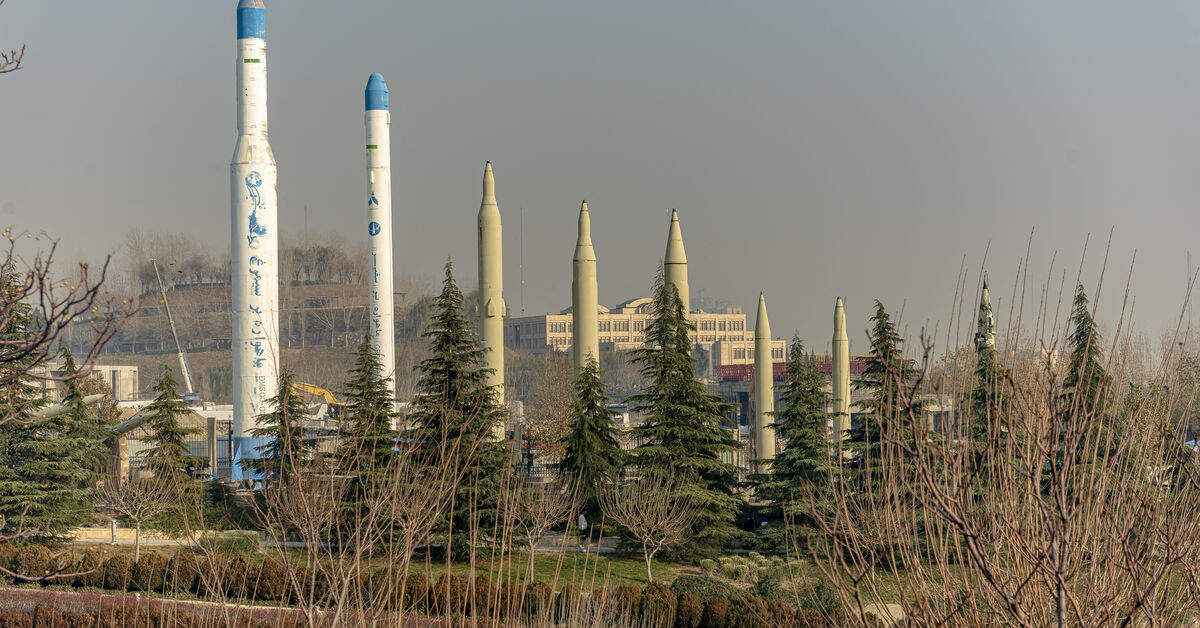Iran's IRGC Threatens US Troops: Heightened Tensions in the Middle East
The Islamic Revolutionary Guard Corps (IRGC), Iran's powerful military branch, has issued fresh threats against US troops stationed in the Middle East, escalating tensions in the already volatile region. This latest escalation follows a period of increased activity and rhetoric from both sides, raising concerns about the potential for a direct military confrontation.
Recent Threats and Actions:
While specific details of the latest threats remain somewhat vague, Iranian state media outlets have carried statements from IRGC officials vowing retaliation for any perceived aggression against Iran. These threats come amidst a backdrop of ongoing sanctions, accusations of Iranian involvement in regional conflicts, and the continued presence of US forces in the region. This isn't the first time the IRGC has made such pronouncements; however, the timing and context suggest a heightened level of concern.
- Increased Military Drills: Iran has recently conducted several large-scale military drills, showcasing its ballistic missile capabilities and demonstrating a readiness to defend its interests. These drills are often interpreted as a message to potential adversaries, including the US.
- Seizure of Oil Tankers: There have been reports of Iranian-linked forces seizing oil tankers in the Strait of Hormuz, a strategically vital waterway. These actions further destabilize the region and serve as a reminder of Iran's potential to disrupt global oil supplies.
- Cyberattacks: Accusations of Iranian-sponsored cyberattacks targeting US infrastructure and interests are also contributing to the rising tensions. Attribution in such cases is often complex, but the suspicion alone fuels the escalating conflict.
US Response and Regional Implications:
The US has responded to the IRGC's threats with a combination of diplomatic efforts and military posturing. The Pentagon has reiterated its commitment to protecting US personnel and interests in the region, while also emphasizing the importance of de-escalation. However, the rhetoric from both sides remains strong, leaving little room for optimism regarding a quick resolution.
The consequences of a direct military conflict between the US and Iran would be far-reaching and devastating. The region is already grappling with numerous conflicts and humanitarian crises, and an escalation would likely lead to widespread instability, refugee flows, and a significant disruption to global energy markets. Regional allies of both the US and Iran are carefully watching the situation, bracing for potential spillover effects.
Analysis and Future Outlook:
The current situation is incredibly complex, with numerous factors contributing to the heightened tensions. Understanding the historical context of the US-Iran relationship is crucial for analyzing the current situation. Experts warn that miscalculation or accidental escalation could easily lead to a major conflict.
Several factors are at play, including:
- Internal Politics: Both the US and Iran are facing internal political pressures, which can influence their foreign policy decisions.
- Regional Power Dynamics: The struggle for regional dominance between Iran and its rivals is a significant driver of the conflict.
- Nuclear Program: The ongoing debate surrounding Iran's nuclear program continues to be a source of tension.
The coming weeks and months will be critical in determining the trajectory of this escalating conflict. International diplomatic efforts are crucial to de-escalate the situation and prevent a catastrophic military confrontation. Close monitoring of the situation is essential for understanding the potential consequences and the actions of all involved parties. The world watches with bated breath as this dangerous situation unfolds.
Call to Action: Stay informed about developments in the Middle East by following reputable news sources and engaging in informed discussions. Promoting peace and diplomacy is essential to mitigating the risks of further escalation.

